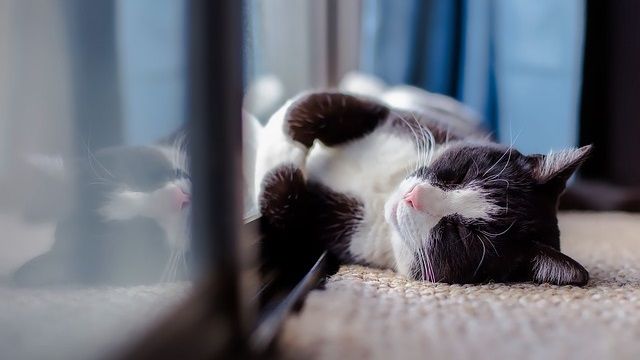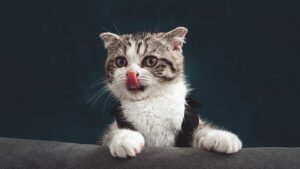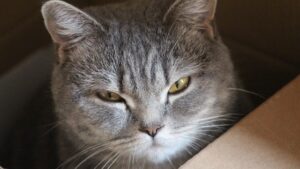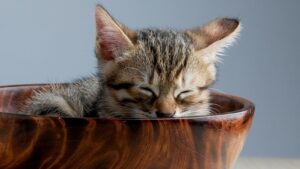Why Do Cats Sleep So Much?
Cats are true champions when it comes to sleep. In a 24-hour period, a healthy adult cat can spend up to 15 hours snoozing! Kittens and seniors, on the other hand, can spend up to 20 hours. The ability for cats to easily fall asleep and readily wake up if needed allows them to take several short naps throughout the day. Their sleeping habits are way different from ours, and even after years of domestication, nearly all of them still follow their natural instinct and behavioral patterns. So why do cats sleep so much?
- Cats sleep 15-20 hours daily, showcasing their natural instincts despite domestication.
- Originally, cats needed to conserve energy for hunting and remain alert from being hunted.
- Cats are polyphasic sleepers, alternating between dozing and deep sleep frequently throughout the day.
- Excessive sleeping can indicate health issues; monitor changes in routine for potential concerns.
- Manage nocturnal energy bursts by providing stimulation and engaging in daytime play sessions.
The beginnings
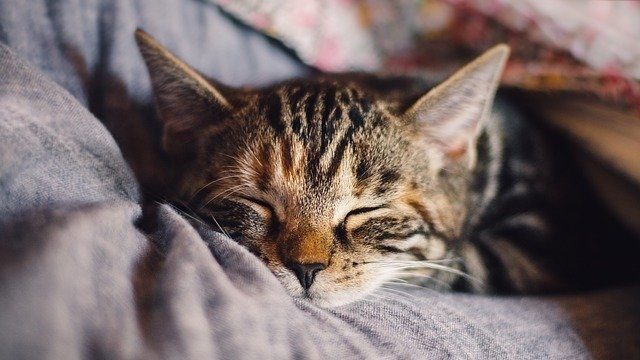
It all comes down to the cat’s original condition in the wild. They are both predator and prey, which forces them to focus on two opposite tasks: efficiently storing energy for hunting, and resting in an alert state to avoid being hunted.
Therefore, small felines depend on the ability to instantly switch from doze mode to an aware and fully operational state.
It is a fact that our tiny tigers no longer need to forage to stay alive. Domestication brought easy and nutritious meals to their plates on a regular basis! However, that doesn’t mean our cats lost the drive for a good chase and ambush. After all, the biological urge of their wild ancestors has not vanished from their bloodstream!
How cats sleep
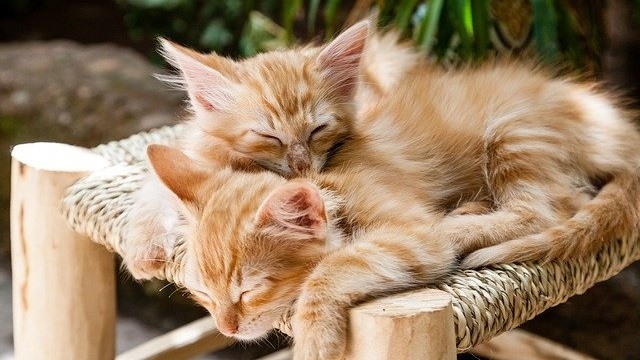
Cats are polyphasic sleepers, which means they sleep several times throughout the day. Like humans, felines can experience different states every time they take a nap. Each state has different characteristics, but don’t worry, I won’t be exploring those in detail here.
To put it simply, when cats fall asleep, their sleeping pattern alternates between dozing and deep sleep, until they wake up again. During light sleep, which takes about 15 to 30 minutes, the cat is laid down in a position that allows them to spring into action if needed. On the contrary, the deep sleep period usually lasts for only 5 minutes and it is when cats experience rapid brain movement.
Sleep versus Energy spikes
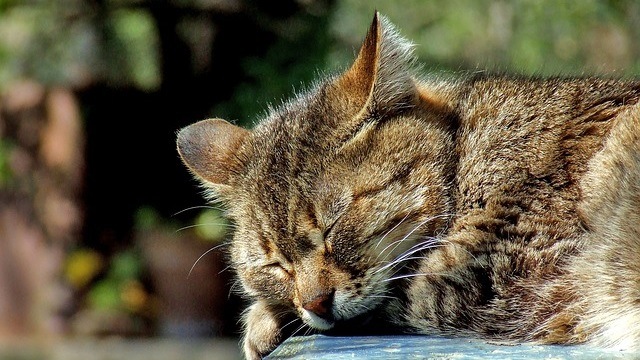
Cats are known for their sudden bursts of energy, especially during dusk and dawn. As crepuscular animals, they tend to be more active in twilight… And that’s why they spend much of the late morning and afternoon sleeping in a patch of sun, and much of the evening and early morning running in circles around the house.
While awake, cats are supposed to be hunting, which is an extremely demanding task. Because of this, they need to be highly productive in storing energy when asleep. With that said, it’s easy to understand that to make the most out of their alert period, kittens seek intense and crazy play sessions. And as we all know, waking their humans up seems to be their favourite activity…
When does ‘a lot’ become ‘too much’?
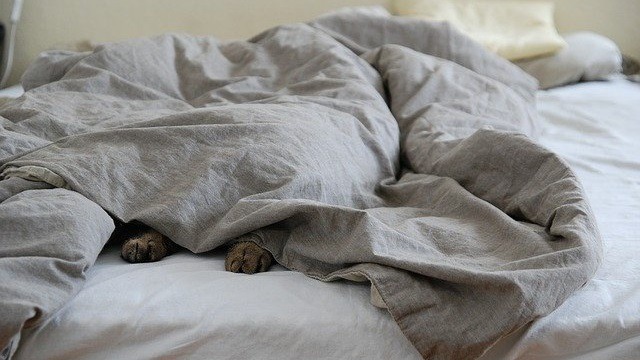
Even for the laziest cat, sleeping too much can be a sign that something is wrong. Whenever you feel that your furry friend is snoozing more than usual, make a quick assessment to check if there’s a plausible reason for that:
- Cats sleep more when the weather asks for it. Chill and rainy days invite a few extra naps, and warm weather usually makes cats less active.
- Non-enriched environments can easily lead to boredom. Regular and intense bouts of play, plus a surrounding environment full of appropriate stimuli will surely keep that boredom far away. Feel free to ask your Maven vet if your environment is suited enough.
Once weather and mood-related issues are ruled out, a change in the sleeping routine can be a red flag regarding more serious health concerns. Gastrointestinal problems, kidney disease or pain are some examples why your kitty might feel extra lethargic.
Keep it balanced
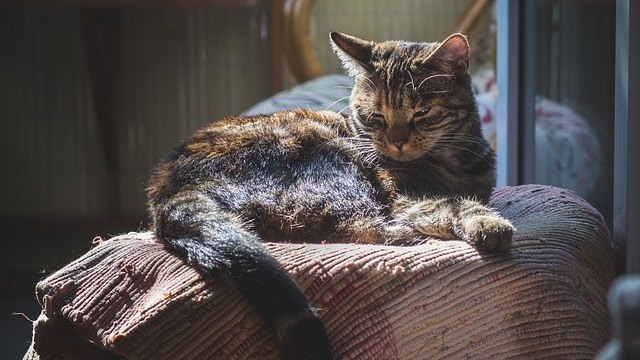
It can be sometimes difficult to cope with a cat who is keen on exhibiting their true instinctive behaviours. Even though some domestic felines are now mimicking their owner’s routines, the majority still make dusk and dawn their happy hours. But there’s no need to despair or suffer from sleep deprivation! Fortunately enough, it is possible to manage the nocturnal bursts of energy cats are known for.
Focus on the day time and follow this lead:
- The first step is to rule out medical issues.
- Avoid answering to your cat’s perky demands during night time. Assure that their requests are not because their basic needs are not being met.
- Provide plenty of mental and physical stimulation by setting an enriched environment. An interactive feeder, interactive toys, several scratching spots, a cat tower and different hiding places are some good examples.
- Have several short but highly intense activities throughout the day.
- Keep in mind that nightfall is when cats are naturally more lively, so take an extra 10-minute period in the evening to engage in a fun and exciting play.
Conclusion
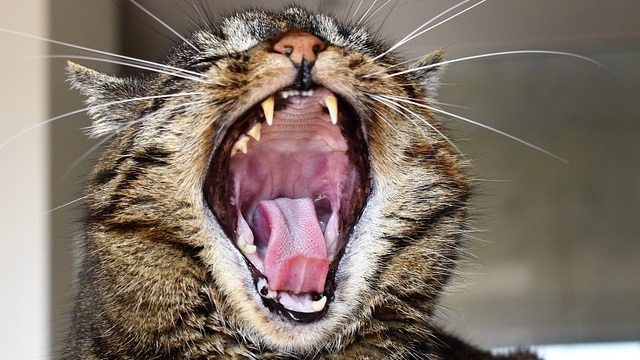
So why do cats sleep so much after all? Well, it’s mostly due to their origins. Regardless, the fundamental idea is pretty straightforward: as long as your buddy is not experiencing deviations from their own sleeping pattern, they’re all good. Whether your tiny tiger’s character leans more to the wild side or resembles your night routines, what matters is that they’re happy, healthy and behaving like their true self!
Maven is all about proactive pet care. Be your best friend’s best friend by giving them 24/7, high-quality, industry-leading vet care to improve their mental health, physical health and more. No more frantic googling or unneeded stressful visits to the vet – Maven helps you save hundreds while also ensuring your pet lives the best life possible. Get your kit now!

